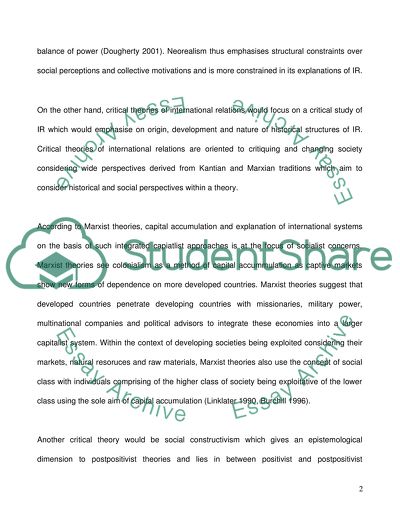Cite this document
(“Critical Theory of International Relations and Neorealism Essay”, n.d.)
Retrieved from https://studentshare.org/politics/1508578-critical-theory-of-international-relations-and-neorealism
Retrieved from https://studentshare.org/politics/1508578-critical-theory-of-international-relations-and-neorealism
(Critical Theory of International Relations and Neorealism Essay)
https://studentshare.org/politics/1508578-critical-theory-of-international-relations-and-neorealism.
https://studentshare.org/politics/1508578-critical-theory-of-international-relations-and-neorealism.
“Critical Theory of International Relations and Neorealism Essay”, n.d. https://studentshare.org/politics/1508578-critical-theory-of-international-relations-and-neorealism.


